News
-
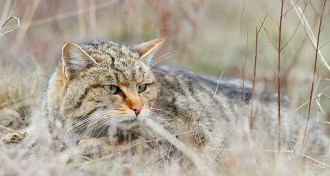 Animals
AnimalsChina trumps Near East for signs of most ancient farm cats
Earliest evidence found for grain as a force in feline domestication.
By Susan Milius -
 Health & Medicine
Health & MedicineDog dust may benefit infant immune systems
Microbes from pet-owning houses protected mice against allergy, infection.
By Nathan Seppa -
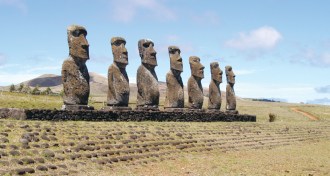 Archaeology
ArchaeologyEaster Island’s farmers cultivated social resilience, not collapse
A Polynesian society often presumed to have self-destructed shows signs of having carried on instead.
By Bruce Bower -
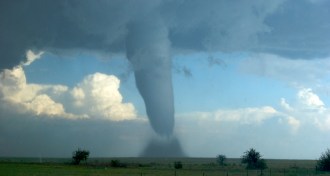 Climate
ClimateTornado intensity climbs in the United States
Larger paths of destruction may be tied to climate change.
By Meghan Rosen -
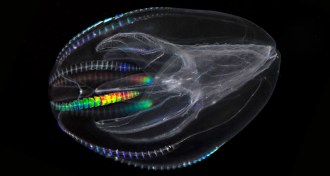 Life
LifeAnimal origins shift to comb jellies
Genetic data confirm the marine predators have more ancient origin than simpler sponges.
By Amy Maxmen -
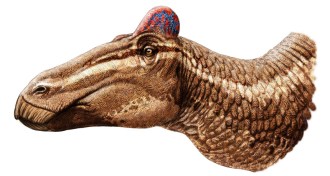 Paleontology
PaleontologyFleshy comb is first found on a dinosaur
A fossil head has both a duck bill and a soft-tissue crest, scientists suggest.
By Susan Milius -
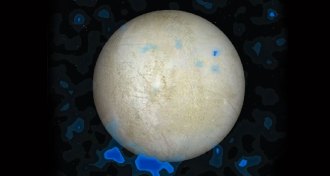 Planetary Science
Planetary ScienceEuropa vents water, Hubble data suggest
Plumes from ice-covered oceans would increase likelihood of life-friendly conditions on one moon of Jupiter.
By Andrew Grant -
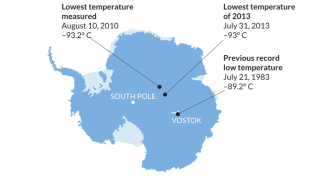 Climate
ClimateColdest place moves from one Antarctic site to another
New record low measured by satellite.
By Meghan Rosen -
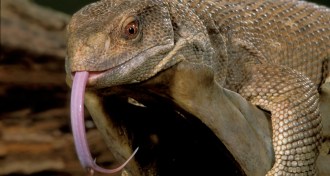 Animals
AnimalsLizard breath has surprising birdlike flow
Decades of assumptions may be wrong about the evolution of reptile lungs.
By Susan Milius -
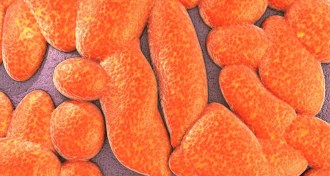 Life
LifeDietary changes affect gut microbes within a day
Menu restricted to meat, egg and cheese alters bacterial mix more than eating only plants.
-
 Health & Medicine
Health & MedicineHeartburn drugs linked to vitamin deficiency
People who take Nexium, Prilosec and other medicines more prone to low B12 levels.
By Nathan Seppa -
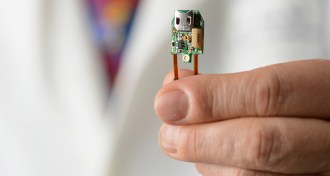 Neuroscience
NeuroscienceBrain chip enables injured rats to control movements
Prosthesis bypasses damaged area to connect distant neurons.